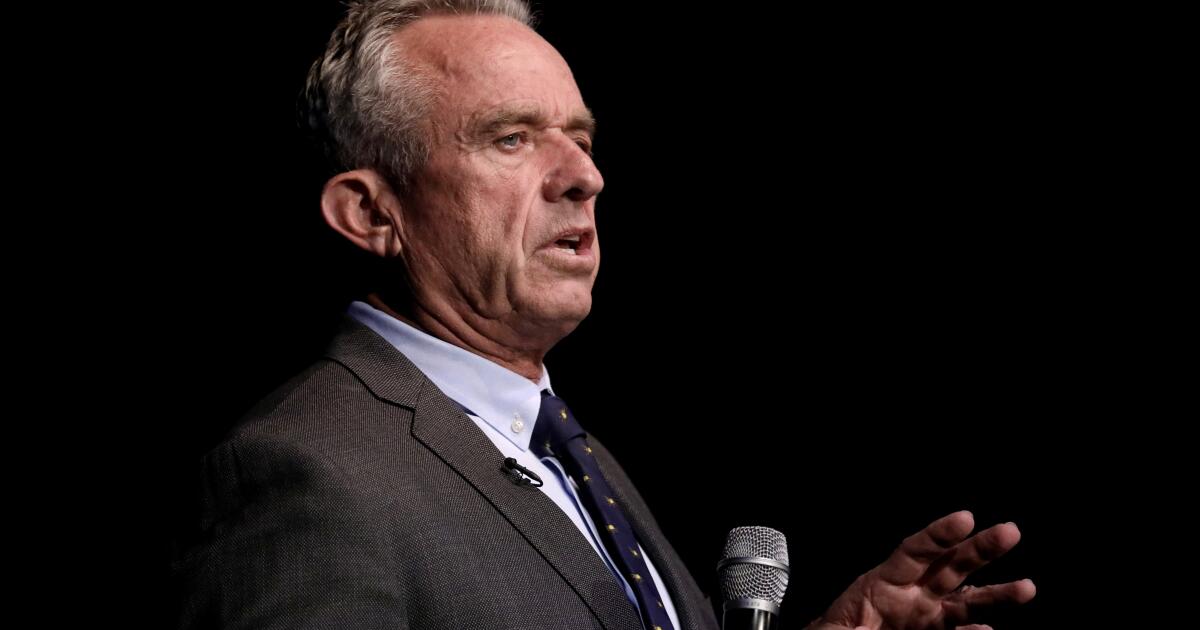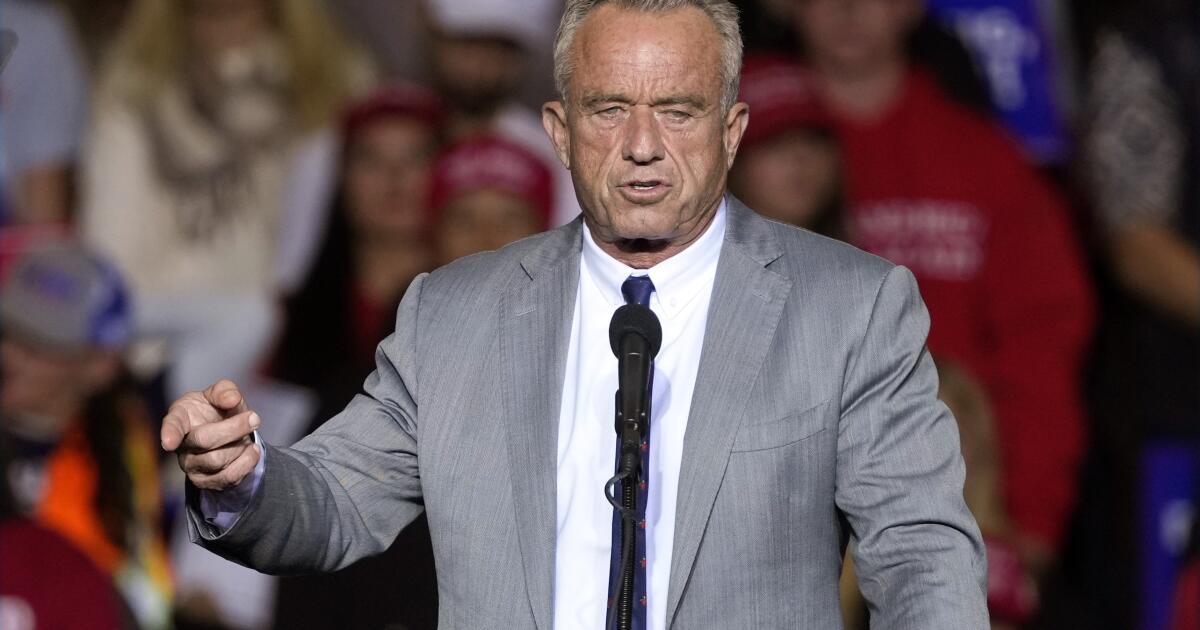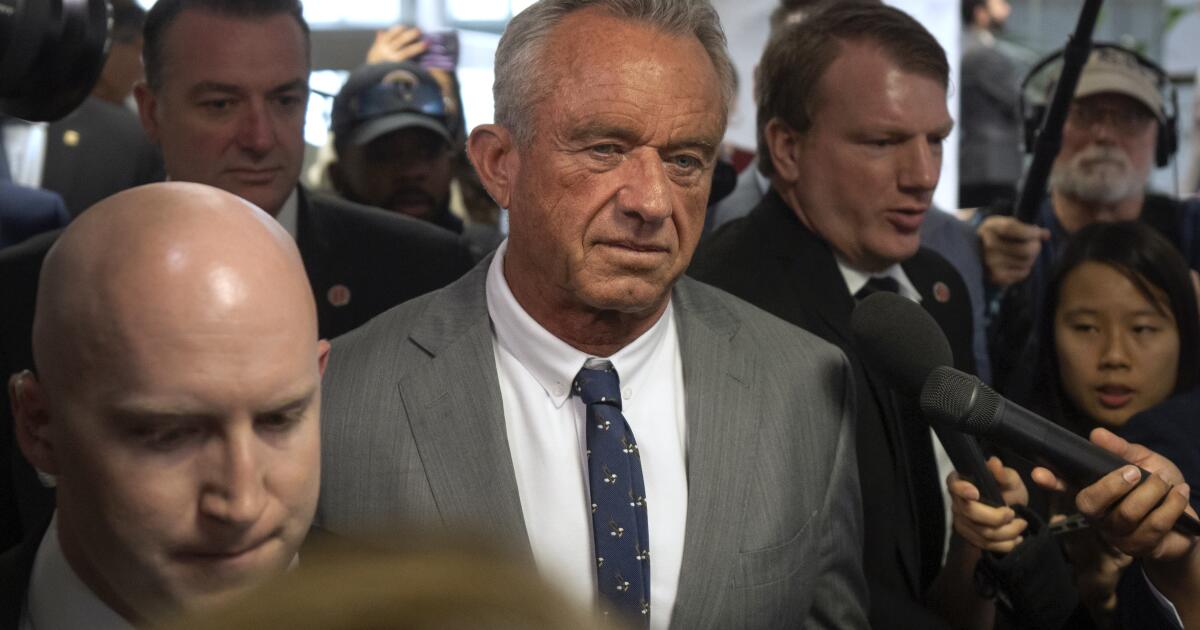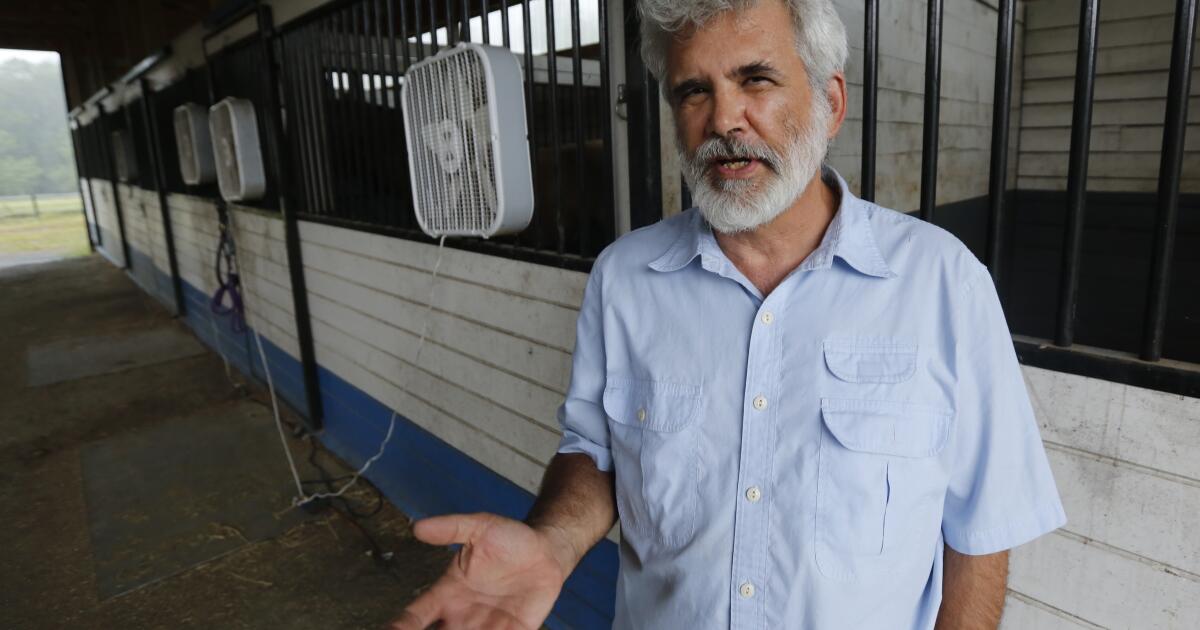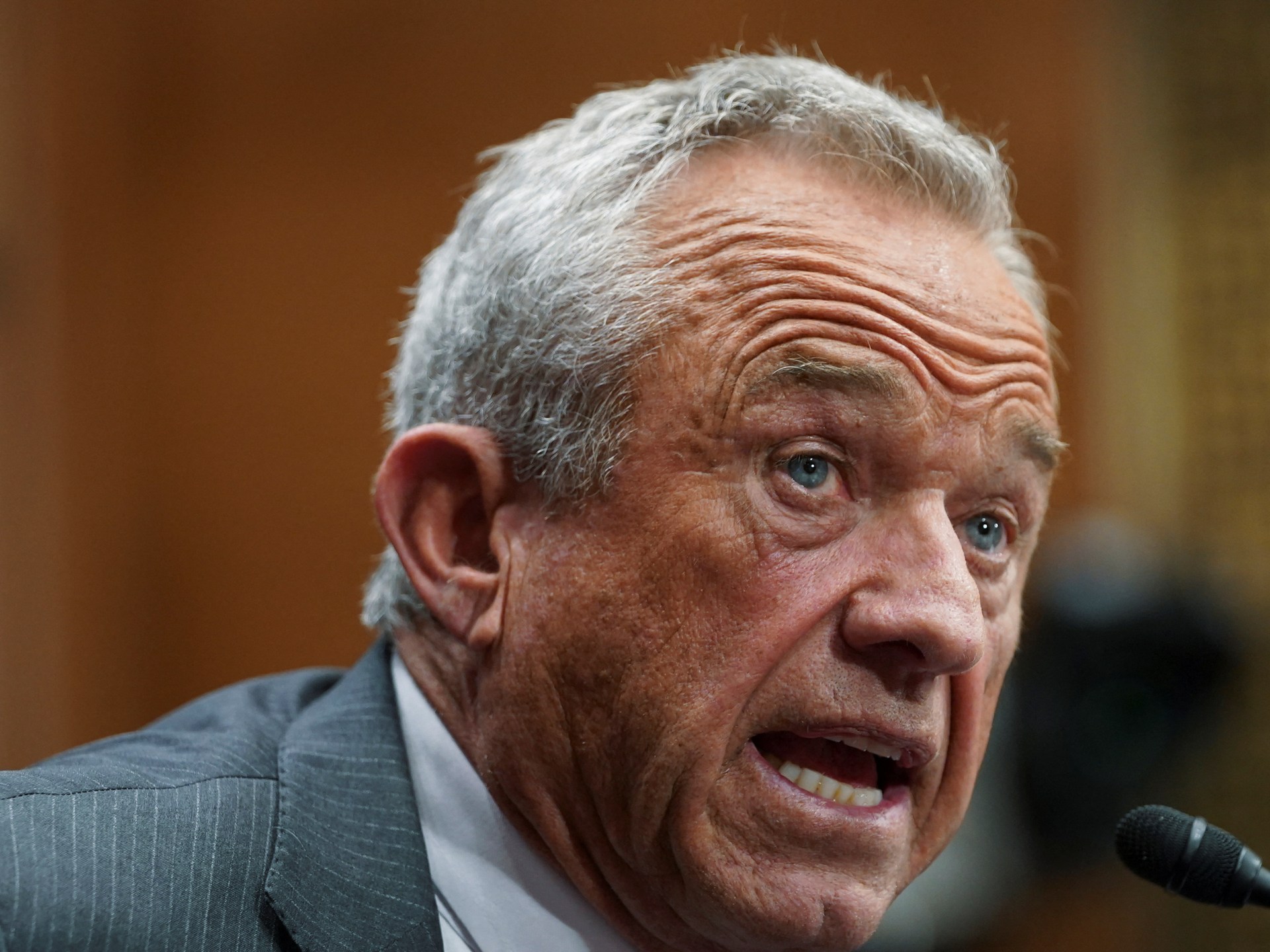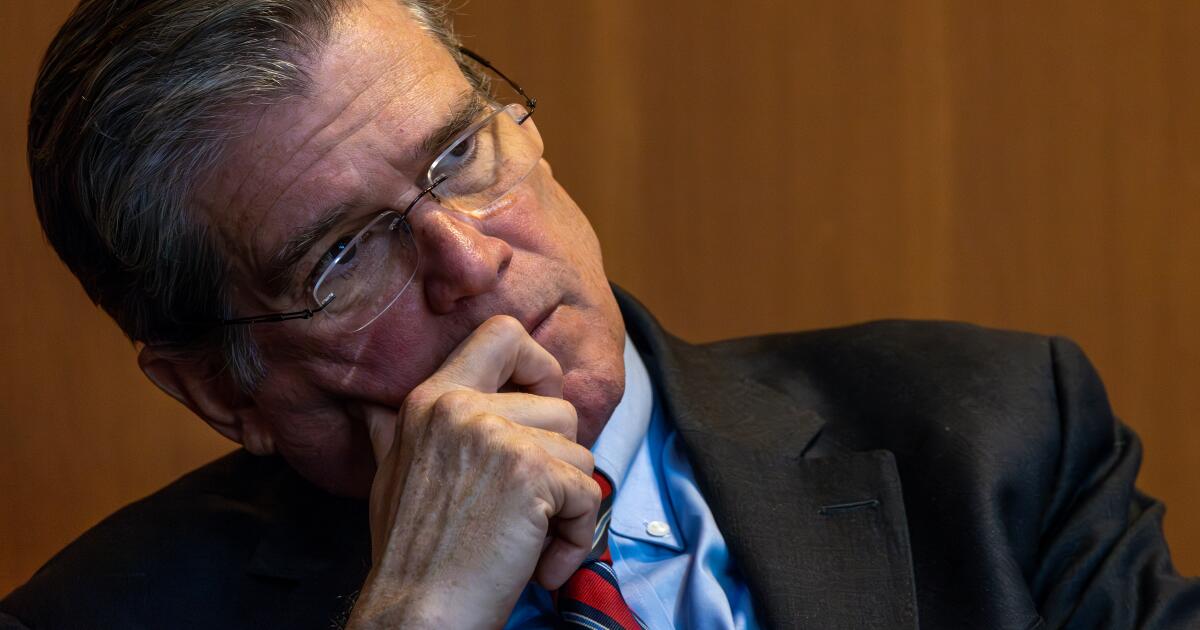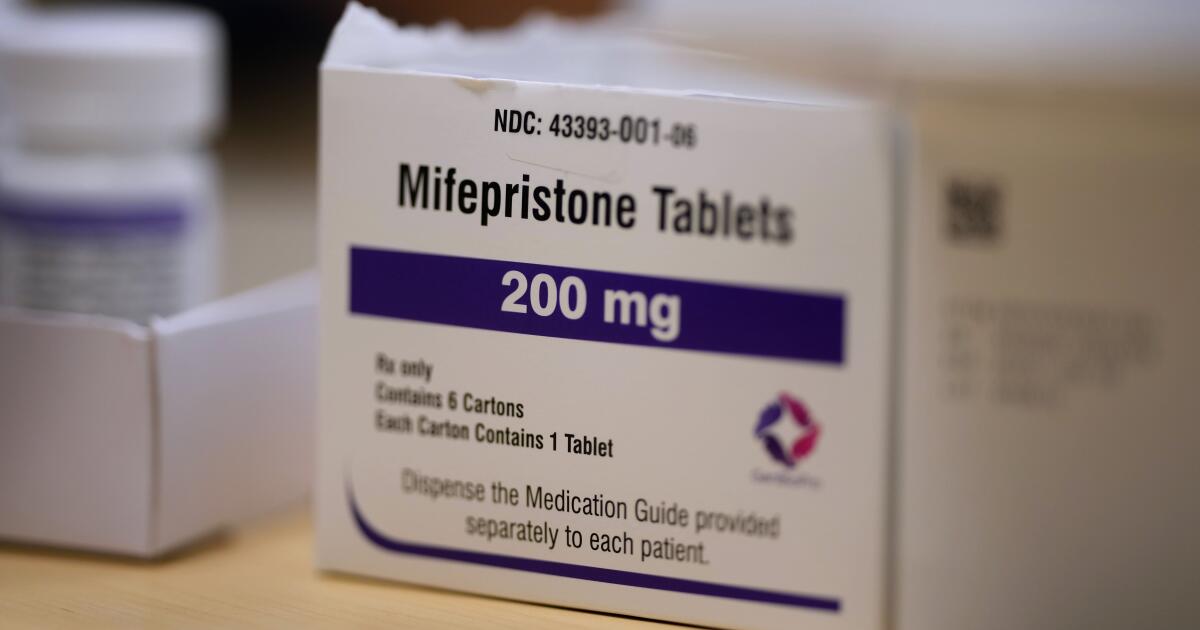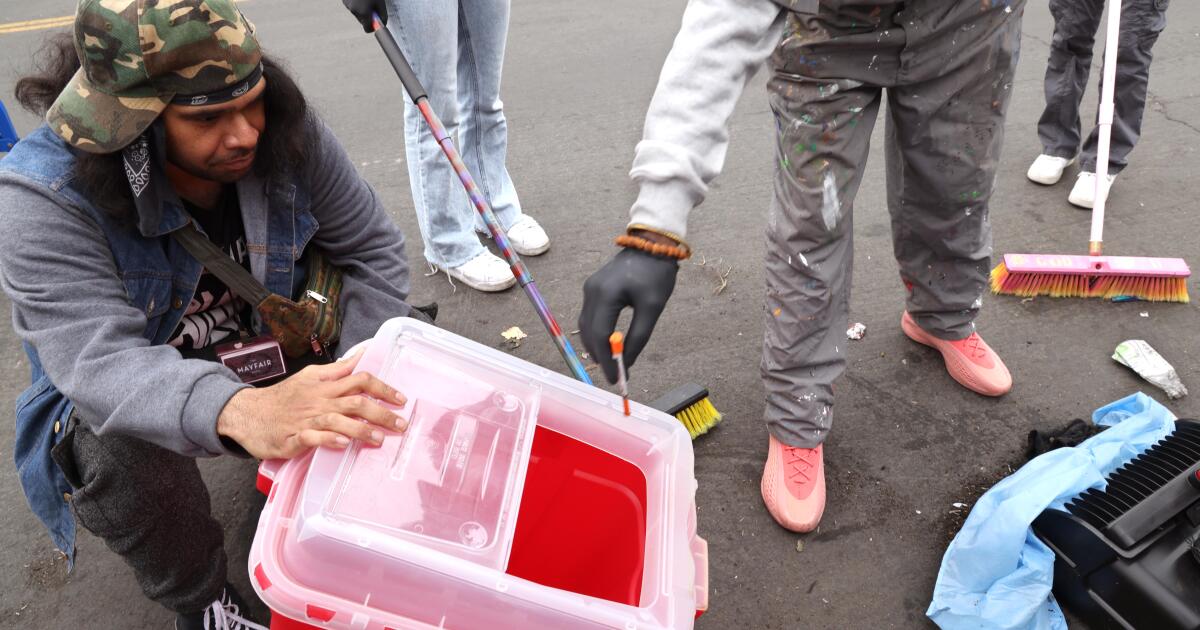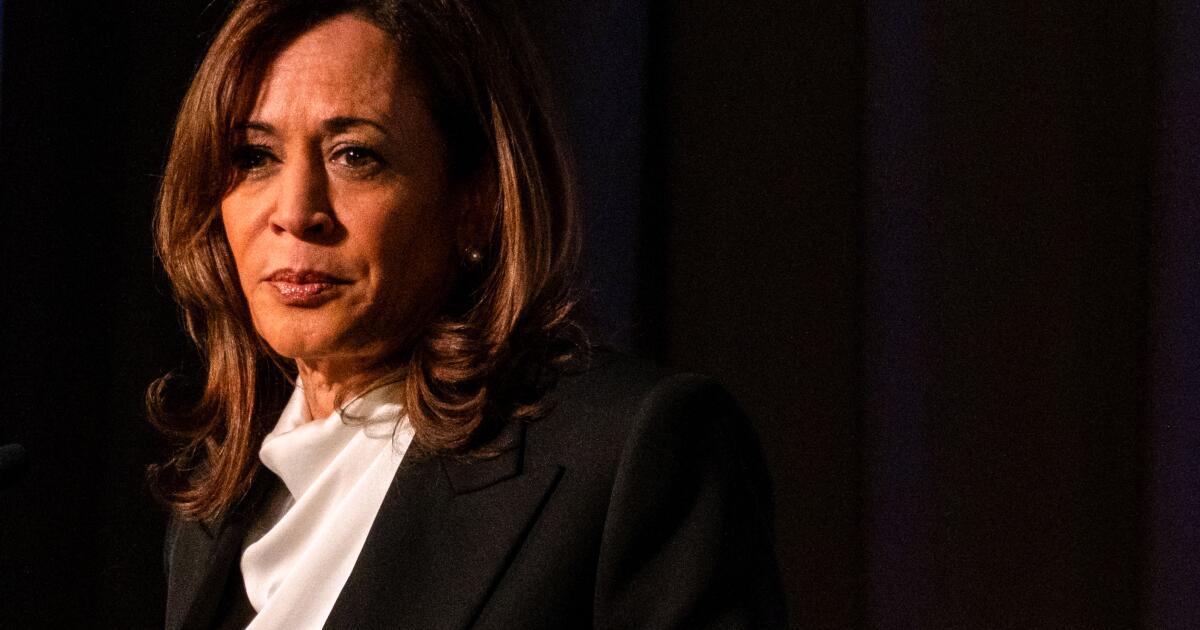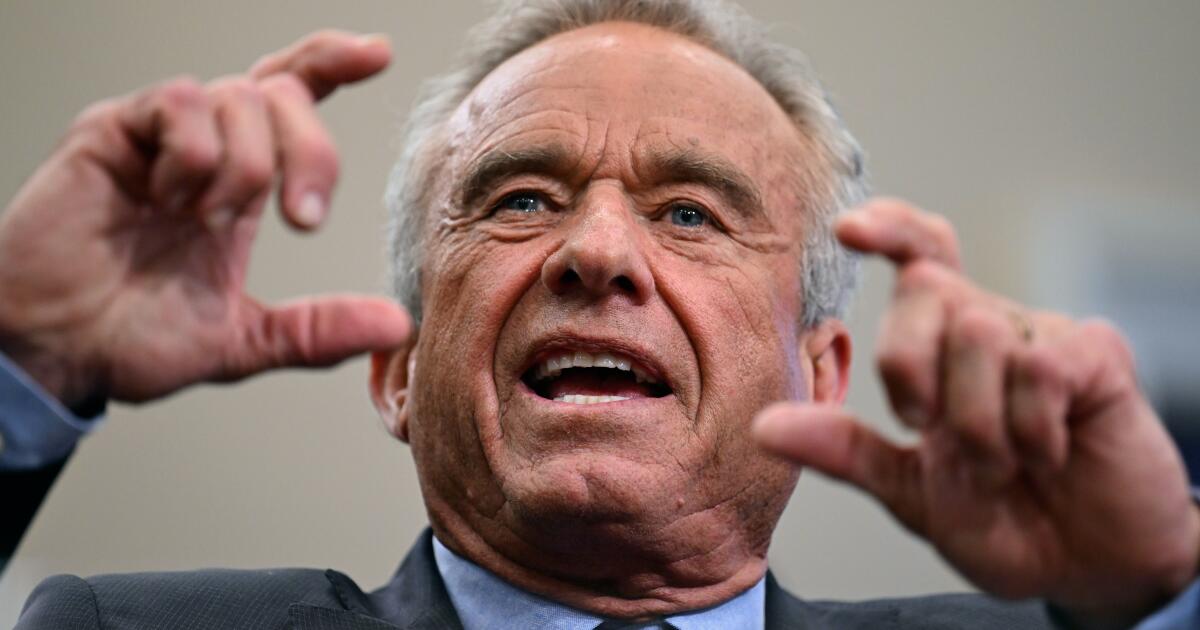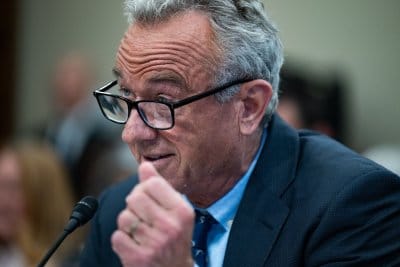RFK Jr. is dismantling trust in vaccines, the crown jewel of American public health
When it comes to vaccines, virtually nothing that comes out of Robert F. Kennedy Jr.’s mouth is true.
The man in charge of the nation’s health and well being is impervious to science, expertise and knowledge. His brand of arrogance is not just dangerous, it is lethal. Undermining trust in vaccines, he will have the blood of children around the world on his hands.
Scratch that.
He already does, as he presides over the second largest measles outbreak in this country since the disease was declared “eliminated” a quarter century ago.
“Vaccines have become a divisive issue in American politics,” Kennedy wrote the other day in a Wall Street Journal essay, “but there is one thing all parties can agree on: The U.S. faces a crisis of public trust.”
The lack of self-awareness would be funny if it weren’t so tragic.
Over the past two decades or so, Kennedy has done more than almost any other American to destroy the public’s trust in vaccines and science. And now he’s bemoaning the very thing he has helped cause.
Earlier this month, Kennedy fired the 17 medical and public health experts of the Centers for Disease Control and Prevention’s Advisory Committee on Immunization Practices — qualified doctors and public health experts — and replaced them with a group of (mostly) anti-vaxxers in order to pursue his relentless, ascientific crusade.
On Thursday, at its first meeting, his newly reconstituted council voted to ban the preservative thimerosal from the few remaining vaccines that contain it, despite many studies showing that thimerosal is safe. On that point, even the Food and Drug Administration website is blunt: “A robust body of peer-reviewed scientific studies conducted in the U.S. and other countries support the safety of thimerosal-containing vaccines.”
“If you searched the world wide, you could not find a less suitable person to be leading healthcare efforts in the United States or the world,” psychiatrist Allen Frances told NPR on Thursday. Frances, who chaired the task force that changed how the Diagnostic and Statistical Manual of Mental Disorders, or DSM, defines autism, published an essay in the New York Times on Monday explaining why the incidence of autism has increased but is neither an epidemic nor related to vaccines.
“The rapid rise in autism cases is not because of vaccines or environmental toxins,” Frances wrote, “but is rather the result of changes in the way that autism is defined and assessed — changes that I helped put into place.”
But Kennedy is not one to let the facts stand in the way of his cockamamie theories. Manufacturers long ago removed thimerosal from childhood vaccines because of unfounded fears it contained mercury that could accumulate in the brain and unfounded fears about a relationship between mercury and autism.
That did not stop one of Kennedy’s new council members, Lyn Redwood, who once led Children’s Health Defense, the anti-vaccine group founded by Kennedy, from declaring a victory for children.
“Removing a known neurotoxin from being injected into our most vulnerable population is a good place to start with making America healthy again,” Redwood told the committee.
Autism rates, by the way, have continued to climb despite the thimerosal ban. But fear not, gullible Americans, Kennedy has promised to pinpoint a cause for the complex condition by September!
Like his boss, Kennedy just makes stuff up.
On Wednesday, he halted a $1-billion American commitment to Gavi, an organization that provides vaccines to millions of children around the world, wrongly accusing the group of failing to investigate adverse reactions to the diptheria vaccine.
“This is utterly disastrous for children around the world and for public health,” Atul Gawande, a surgeon who worked in the Biden administration, told the New York Times.
Unilaterally, and contrary to the evidence, Kennedy decided to abandon the CDC recommendation that healthy pregnant women receive COVID vaccines. But an unvaccinated pregnant woman’s COVID infection can lead to serious health problems for her newborn. In fact, a study last year found that babies born to such mothers had “unusually high rates” of respiratory distress at or just after birth. According to the CDC, nearly 90% of babies who were hospitalized for COVID-19 had unvaccinated mothers. Also, vaccinated moms can pass protective antibodies to their fetuses, who will not be able to get a COVID shot until they are 6 months old.
What else? Oh yes: Kennedy once told podcaster Joe Rogan that the 1918 Spanish flu epidemic was “vaccine-induced flu” even though no flu vaccine existed at the time.
He also told Rogan that a 2003 study by physician scientist Michael Pichichero, an expert on the use of thimerosal in vaccines, involved feeding babies 6 months old and younger mercury-contaminated tuna sandwiches, and that 64 days later, the mercury was still in their system. “Who would do that?” Kennedy demanded.
Well, no one.
In the study, 40 babies were injected with vaccines containing thimerosal, while a control group of 21 babies got shots that did not contain the preservative. None was fed tuna. Ethylmercury, the form of mercury in thimerosal, the researchers concluded, “seems to be eliminated from blood rapidly via the stools.” (BTW, the mercury found in fish is methylmercury, a different chemical, which can damage the brain and nervous system. In a 2012 deposition for his divorce, which was revealed last year, Kennedy said he suffered memory loss and brain fog from mercury poisoning caused by eating too much tuna fish. He also revealed he has a dead worm in his brain.)
Kennedy’s tuna sandwich anecdote on Rogan’s podcast was “a ChatGPT-level of hallucination,” said Morgan McSweeney, a.k.a. “Dr. Noc,” a scientist with a doctorate in pharmaceutical sciences, focusing on immunology and antibodies. McSweeney debunks the idiotic medical claims of non-scientists like Kennedy in his popular social media videos.
Speaking of AI hallucinations, on Tuesday, at a congressional committee hearing, Kennedy was questioned about inaccuracies, misinformation and made up research and citations for nonexistent studies in the first report from his Make America Healthy Again Commission.
The report focused on how American children are being harmed by their poor diets, exposure to environmental toxins and, predictably, over-vaccination. It was immediately savaged by experts. “This is not an evidence-based report, and for all practical purposes, it should be junked at this point,” Georges C. Benjamin, executive director of the American Public Health Assn. told the Washington Post.
If Kennedy was sincere about improving the health of American children he would focus on combating real scourges like gun violence, drug overdoses, depression, poverty and lack of access to preventive healthcare. He would be fighting the proposed cuts to Medicaid tooth and nail.
Do you suppose he even knows that over the past 50 years, the lives of an estimated 154 million children have been saved by vaccines?
Or that he cares?
